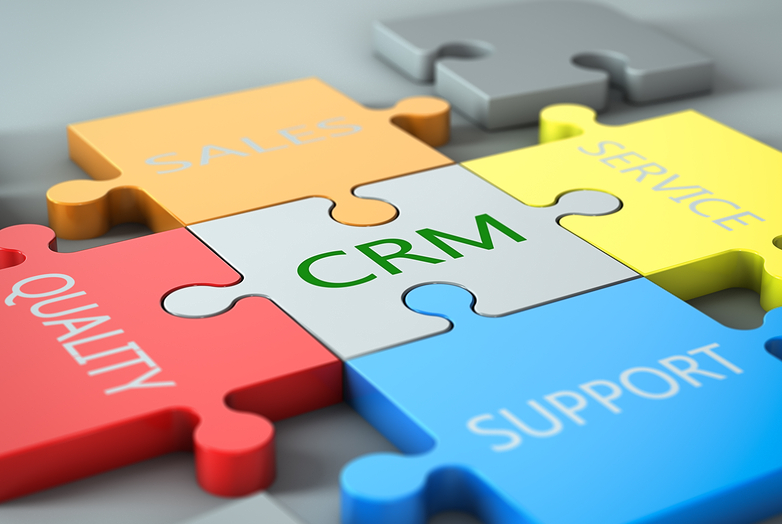How CRM Can Simplify Your Customer Support In today’s competitive market, customer support plays a crucial role in defining the success of a business. It’s the touchpoint where customers interact with your brand, seek help, and form opinions. This is where Customer Relationship Management (CRM) systems come into play, streamlining and enhancing your customer support efforts. But how exactly does CRM simplify customer support? Let’s dive in and find out.
Understanding CRM
Definition of CRM
CRM stands for Customer Relationship Management. It’s a technology used to manage all your company’s relationships and interactions with current and potential customers. The goal is simple: Improve business relationships to grow your business.
History and Evolution of CRM
From the early days of Rolodexes and contact management software in the 1980s to the sophisticated, AI-driven platforms we see today, CRM has come a long way. Initially, CRM systems were designed primarily for sales teams, but their scope has expanded significantly to include customer service, marketing, and even supply chain management.
Core Features of CRM for Customer Support

Centralized Customer Information
A CRM system acts as a centralized hub for all customer information. Every interaction, purchase history, and preference is stored in one place, allowing support agents to quickly access the information they need to assist customers effectively.
Automated Response Systems
CRM systems often come equipped with automated response features. These can include automated email replies, chatbots, and pre-set response templates, which ensure that customers receive timely responses, even outside of business hours.
Integrated Communication Channels
Modern CRM systems integrate multiple communication channels—email, phone, social media, and live chat—into one platform. This ensures that no customer query slips through the cracks and allows support teams to manage all interactions from a single interface.
Benefits of CRM in Customer Support
Improved Customer Satisfaction
When customers feel heard and valued, their satisfaction levels increase. CRM systems enable personalized and efficient interactions, ensuring customers receive the support they need promptly.
Increased Efficiency and Productivity
By automating routine tasks and providing a comprehensive view of customer interactions, CRM systems free up support agents to focus on more complex issues. This leads to higher productivity and more efficient support operations.
Enhanced Data Management
With all customer data stored in one place, analyzing and deriving insights becomes much easier. Businesses can track patterns, identify common issues, and improve their support processes based on data-driven decisions.
Implementing CRM in Your Business
Choosing the Right CRM Software
Selecting the right CRM software is crucial. Consider factors such as ease of use, scalability, integration capabilities, and cost. Popular options include Salesforce, HubSpot, and Zoho CRM, each offering unique features tailored to different business needs.
Setting Up CRM for Customer Support
Once you’ve chosen your CRM, the next step is implementation. This involves importing existing customer data, setting up communication channels, and configuring automation rules. It’s essential to tailor the system to fit your specific customer support workflows.
Training Your Team
A CRM system is only as good as the people using it. Invest in thorough training for your support team to ensure they understand how to leverage the system effectively. Regular training sessions and updates are crucial as the CRM evolves.
Case Studies of Successful CRM Implementation
Example 1: E-commerce Business
An online retail company implemented a CRM system to manage its growing customer base. By centralizing customer data and automating responses, they were able to reduce response times by 50% and saw a 30% increase in customer satisfaction scores.
Example 2: Service-based Business
A consulting firm used a CRM system to streamline its customer support. Integration of multiple communication channels allowed their support team to handle 20% more queries without additional staffing, significantly improving efficiency.
Challenges in CRM Implementation
Common Obstacles
Implementing a CRM system isn’t without its challenges. Common obstacles include data migration issues, resistance to change from staff, and the complexity of integration with existing systems.
Overcoming Challenges
To overcome these challenges, it’s important to plan thoroughly, involve all stakeholders in the process, and provide ample training and support. Regular feedback loops can help address issues as they arise and ensure a smoother implementation.
Future of CRM in Customer Support
Emerging Trends
The future of CRM in customer support looks promising with emerging trends such as AI-driven analytics, personalized customer experiences, and increased use of chatbots and virtual assistants.
Technological Advancements
Advancements in machine learning and artificial intelligence are set to revolutionize CRM systems, making them more intuitive and capable of predicting customer needs before they even arise.
Conclusion
In summary, CRM systems are invaluable tools for simplifying and enhancing customer support. They centralize information, automate responses, and integrate communication channels, leading to improved customer satisfaction, increased efficiency, and better data management. While there are challenges in implementation, the benefits far outweigh the hurdles, making CRM a worthwhile investment for businesses of all sizes.
FAQs
What is CRM? CRM stands for Customer Relationship Management. It is a technology used to manage interactions with current and potential customers, aiming to improve business relationships and grow the business.
How does CRM improve customer support? CRM improves customer support by centralizing customer information, automating responses, and integrating multiple communication channels, leading to more efficient and personalized service.
Can small businesses benefit from CRM? Absolutely. CRM systems can help small businesses manage customer interactions more effectively, leading to improved customer satisfaction and business growth.
What are some popular CRM tools? Some popular CRM tools include Salesforce, HubSpot, Zoho CRM, and Microsoft Dynamics. Each offers unique features tailored to different business needs.
How long does it take to implement a CRM system? The time required to implement a CRM system can vary depending on the complexity of the system and the size of the business. It can take anywhere from a few weeks to several months to fully implement and integrate a CRM system.